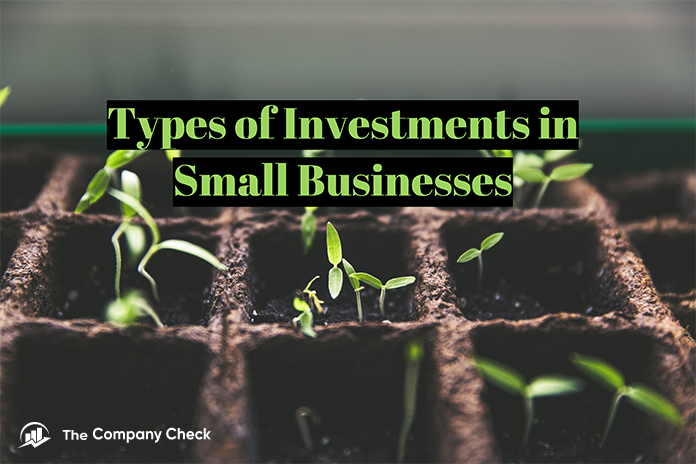Small and medium enterprises are the backbone of any economy. Investing in these businesses helps them grow as well as diversifies an investor’s portfolio. Investors also offer business owners a different method of financing through different types of investments and thereby ease the burden of running your own business.
Most small-time business owners only know about business loans as a means of funding. There are only two types of investments in small businesses, equity (exchanging money for ownership and profits) or debt (lending money). There may be many variations, however, they all lead back to these two fundamental types.
Equity Investments in Small Businesses
An equity investment in a small business means that you are buying a stake in the business. This means that you own a certain portion of the business. Investors that deal in equity usually provide capital in cash in exchange for a cut of the profit. This capital can be used for business expansion, running daily operations, debt reduction, repaying loans, or hiring new employees to increase the workforce.
In certain cases, the percentage of ownership in the business becomes proportional to the capital the investor has provided. For example, if you invest Rs 1 lakh and another investor gives Rs 9 lakh, then you have 10% ownership of the business. This means you will most likely receive 10% of the profits and may have to bear 10% of the losses since you are responsible for 10% of the equity. However, in other cases, the division of ownership and dividends may differ with respect to contracts and other terms and conditions.
Equity investments can provide enormous returns but the risk of loss due to a bad quarter or year is equally high.
Debt Investments in Small Businesses
A debt investment in a small business means that you provide a loan in return for interest income and eventually, repayment of the principal loan amount. This debt investment is usually given as direct loans with regular amortization (reduction of interest first, then principal) or the purchase of bonds issued by the business, which provide semi-annual interest payments mailed to the bondholder.
The advantage of debt investment is that it has more priority in the capitalization structure. If the company shuts down or goes bankrupt, then the debt has priority over equity investors. The highest level of debt is a first mortgage secured bond that has a lien on a specific piece of valuable property or an asset, such as a plant or factory. Debentures are the lowest level of debt where credit is secured on the basis of a company’s reputation and credit instead of an asset. This is generally a bond, issued as a loan without collateral with fixed payments and interest.
There is no better option between the two. It all depends on your risk appetite. The investment type you choose should come down to your level of comfort with the risks of debt or equity, and your investing philosophies.



